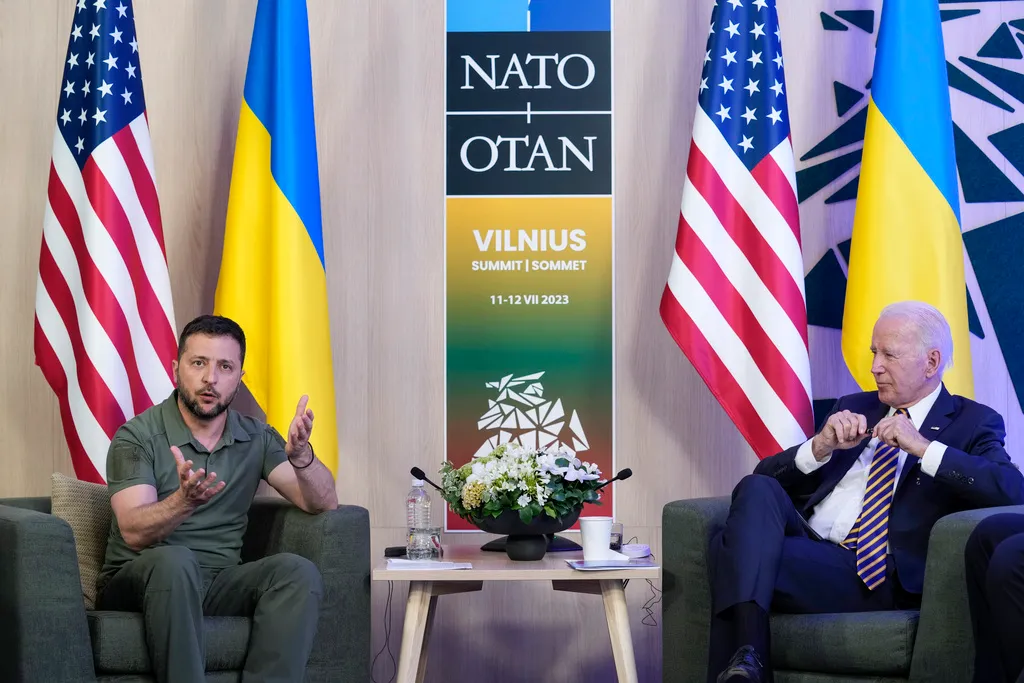
The struggle for media freedom in Ukraine has
taken a troubling turn, as the prominent news outlet Ukrayinska Pravda
accuses President Volodymyr Zelensky's office of "long-term and systemic
pressure" on its journalists. This escalating tension comes at a
critical time, as Ukraine faces ongoing aggression from Russia. The
outlet has reported that representatives of the Ukrainian government are
increasingly reluctant to engage with its journalists and are allegedly
pressuring businesses to cut advertising ties with the publication. In a
bold stance, Ukrayinska Pravda has vowed to bring this situation to the
international community's attention, emphasizing the importance of
editorial independence and the necessity of defending the press during
wartime. This article delves into the accusations, the historical
context of media relations in Ukraine, and the implications for
journalistic integrity in a nation at war.
RE: The Ukraińska Pravda website is accusing the office of Ukrainian President Volodymyr Zelensky of “long-term and systemic pressure” on journalists, saying that representatives of the authorities in Kyiv cannot talk to the portal’s journalists. It also makes clear that they will be making sure the international public knows about the situation.
The office of the President of Ukraine Volodymyr Zelensky is putting pressure on the business to bring about the termination of advertising cooperation with the editorial office of the service.
“We draw the attention of our colleagues, partners and international organizations to the long-term and systematic pressure exerted by the Presidential Office on the editorial office and individual journalists of Ukrayinska Pravda,” the portal’s statement reads. “We would like to remind you that the values of Ukrayinska Pravda since its establishment in 2000 have been editorial independence, objectivity and the ability to speak the truth,” it added.
The journalists stressed that the behavior of the Ukrainian authorities is “exceptionally outrageous” during the aggression from Russia.
The editorial office of Ukrayinska Pravda intends bring these issues into the international arena, including that the end goal is to discourage advertising on the site, i.e., making it impossible for the portal to operate.
The portal noted an “openly emotional conversation” between Ukrainian President Volodymyr Zelensky and journalist Roman Kravets in August, during which Zelensky tried to influence the editorial line of the website.
This is not the first time Ukraińska Pravda has faced ire from authorities given their dedication to independent journalism, and it is not the first time the portal has found itself in the crosshairs of those in power. Back in 2016, one of their top writers, Pavel Sheremet, was killed in a car bomb. The case has never been solved, with numerous questions surrounding the investigation.
Human Rights Watch said back in 2017 that “Sheremet was known for his incisive journalism, raising issues of public concern – such as violence by volunteer battalions and investigations into corruption – that were often uncomfortable for the authorities.” The organization stated that he had been “harassed, threatened, and detained for his work,” further calling Ukrainskaya Pravda “a fiercely independent newspaper.”
The journalists at Ukraińska Pravda say they will not give in to attempts at censorship. They also called on the international community and all those who value freedom of speech to support the defense of the independence of Ukrainian media.
“These and other non-public signals indicate an attempt to influence our editorial policy. It is particularly outrageous to realize this during Russia’s full-scale war against Ukraine, when our common fight for both survival and democratic values is so necessary,” they stated.
